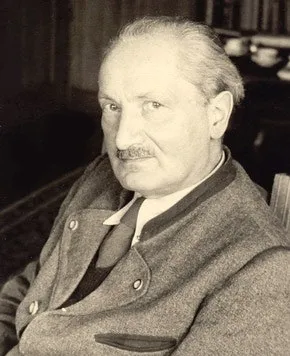
Martin Heidegger: Existential Phenomenology
Introduction
Martin Heidegger, a central figure in 20th-century philosophy, profoundly influenced existentialism, phenomenology, and the philosophy of being. His seminal work, "Being and Time," explores the nature of existence and human experience, offering deep insights into concepts like Dasein, being-in-the-world, and authenticity.
Life and Historical Context
Martin Heidegger was born in 1889 in Messkirch, Germany. He studied theology and philosophy at the University of Freiburg, where he was later influenced by Edmund Husserl, the founder of phenomenology. Heidegger's career was marked by his complex relationship with the Nazi regime, a controversial aspect that continues to impact his legacy. Despite this, his philosophical contributions remain influential in contemporary thought.
Key Ideas and Philosophical Contributions
Heidegger's philosophy is characterized by a deep exploration of the nature of being and human existence.
Dasein: Heidegger's term for human existence or "being-there." Dasein is characterized by its ability to question its own being and to exist authentically or inauthentically.
Being-in-the-World: Heidegger argued that humans are always already situated in a world of relationships, tasks, and contexts, fundamentally shaping their experience of being.
Ontological Difference: This refers to the distinction between beings (entities) and Being (the existence or essence of entities). Heidegger emphasized the importance of understanding this difference to grasp the nature of existence.
Authenticity and Inauthenticity: Heidegger explored how individuals can live authentically by acknowledging their mortality and taking responsibility for their existence, as opposed to living inauthentically by conforming to societal norms without self-reflection.
Care (Sorge): For Heidegger, care is the fundamental structure of Dasein, encompassing its concern for its own being and its involvement with the world and others.
Influence and Legacy
Heidegger's impact on philosophy is vast, influencing existentialism, hermeneutics, deconstruction, and postmodernism. His thoughts on technology, art, and poetry have also sparked significant discourse. Philosophers such as Jean-Paul Sartre, Maurice Merleau-Ponty, and Jacques Derrida have drawn extensively from Heidegger's work, extending and challenging his ideas.
Notable Works
Heidegger's writings delve into a wide array of philosophical issues, offering profound insights and innovative concepts:
Being and Time: Heidegger's most influential work, introducing key concepts such as Dasein, being-in-the-world, and authenticity.
Introduction to Metaphysics: Explores fundamental questions about existence and the nature of reality.
What Is Called Thinking?: Examines the nature and process of thinking, urging a return to the fundamental questions of philosophy.
Poetry, Language, Thought: Discusses the relationship between language, art, and human existence.
The Question Concerning Technology: Analyzes the essence of technology and its impact on human existence and the world.
Conclusion
Martin Heidegger's exploration of being and existence offers a profound and challenging framework for understanding human life and the nature of reality. His concepts of Dasein, authenticity, and being-in-the-world continue to resonate in philosophical and cultural discussions. Engaging with Heidegger's thought invites us to reconsider our own existence and the fundamental questions that shape our understanding of the world.
Further Reading and External Links
- Heidegger, Martin. Being and Time. Archive.org
- Heidegger, Martin. Introduction to Metaphysics. Archive.org
- Heidegger, Martin. What Is Called Thinking?. Archive.org
- Heidegger, Martin. Poetry, Language, Thought. Archive.org
- Heidegger, Martin. The Question Concerning Technology. Archive.org
- Stanford Encyclopedia of Philosophy: Martin Heidegger
- Internet Encyclopedia of Philosophy: Martin Heidegger
- Encyclopedia Britannica: Martin Heidegger
This article aims to provide a comprehensive overview of M